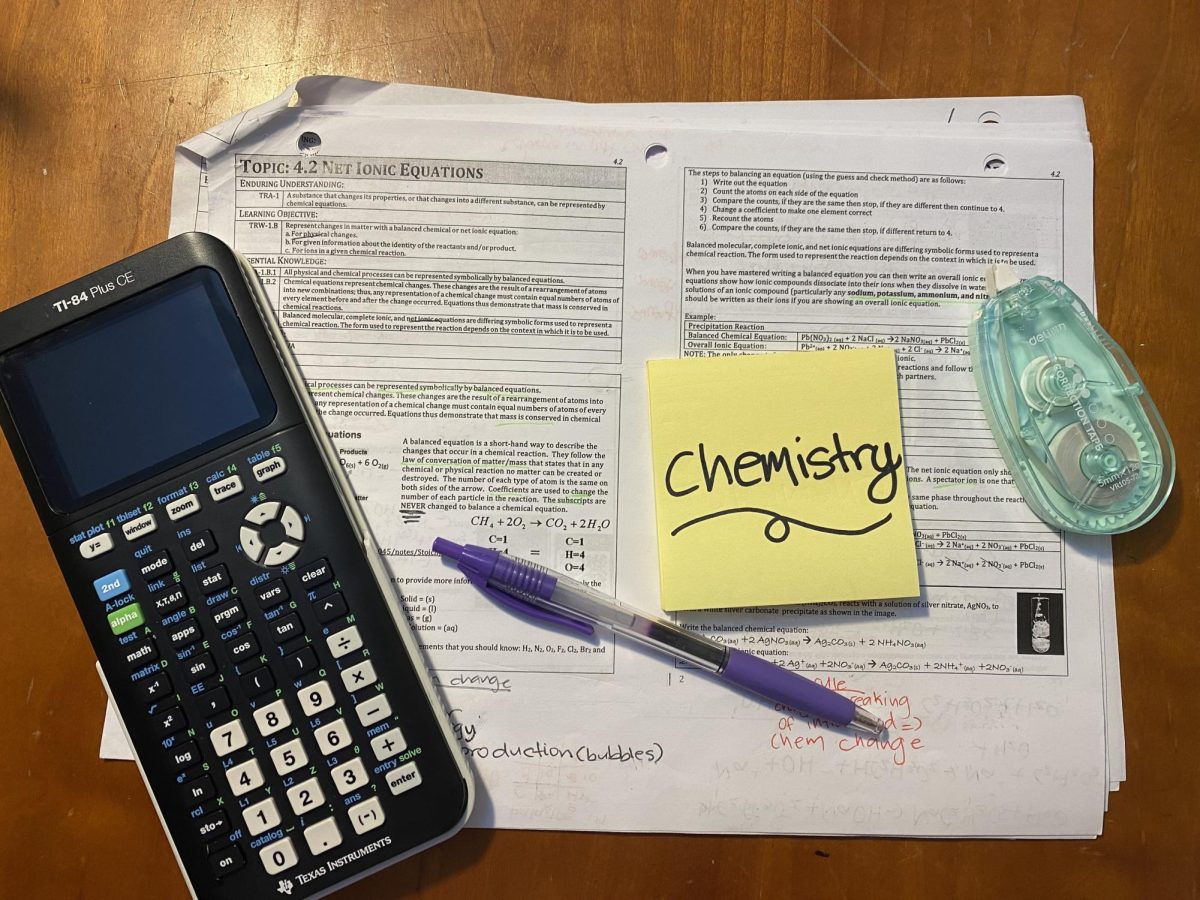The growing interest in AP Chemistry at Dublin High is evident in the recent, unprecedented need to assign two teachers to the class. However, if you are one of the many students still considering the commitment of taking such a challenging (yet fulfilling) course, here is all of the information you need to know in order to make an informed decision.
As you’ve probably heard before, it is always better to take a course if you are genuinely interested in the topics it covers. Although this is general advice that is applicable to every AP class, it is especially relevant to AP Chemistry. Indeed, it is significantly harder to succeed in the class if you don’t like chemistry or wish to pursue it as a career. Of course, it’s still possible to succeed, but this class requires self-initiative and learning on your own—both of which students who dislike chemistry will have a more difficult time applying.
A prerequisite for AP Chemistry is the completion of a chemistry course, with Honors Chemistry being strongly recommended. Nevertheless, taking AP Chemistry without Honors Chemistry is still feasible, though it will require some independent learning for topics that appear in AP Chemistry that were only covered in Honors Chemistry.
As a rigorous course, AP Chemistry has high expectations for students who want to succeed. The pacing is fast, and independent learning is often needed and recommended. As a result, students are frequently asked to learn and review content before class in order to come prepared with questions to deepen their understanding. However, plenty of resources will be given for the student to utilize in a way that best fits their needs. Moreover, there is significant homework over the summer with an assessment typically given the first week of school. Although it might not seem fun, it is essential to complete the homework in order to brush up on basic chemistry concepts to be ready for the new content that builds upon the expected pre-existing foundation.
Now, you might be wondering what the benefits are of taking such a class. (Spoiler Alert: There are many!) Like with the other AP Classes, scoring a 3 or above on the national exam will grant college credit at many schools, saving time and money. It is especially important to many STEM majors as many require chemistry courses to graduate, which could be waived by passing the AP exam. Even in the few instances where college credit won’t be granted, it is still useful for preparing you for the topics and rigor of a college-level chemistry class.
To shed more light on this topic, I asked Mr. Vereen—now teaching his twelfth year of AP Chemistry—a couple of questions that he was graciously willing to answer.
Do you have any advice for students who are going into AP Chemistry without an Honors Chemistry background?
- Chemistry is a course prerequisite, with Honors Chemistry strongly recommended. While both courses provide an excellent grounding in first-year high school chemistry, the rigor of the Honors Chemistry course is more in-line with the pace and depth of the Advanced Placement course. That said, a strong student with any 1st-year chemistry background, strong math course prerequisite, and highly interested in the natural sciences should consider AP Chemistry.
Are there any interesting or exciting labs or topics in AP Chemistry that students can look forward to?
- We spend a lot of time with equilibrium and thermodynamics. There are a lot of real-world connections in these areas that students have found valuable. A specific example is galvanic cells (batteries), which we study in the thermodynamics applications unit.
From your experience, what qualities do successful AP Chemistry students typically have?
- Successful AP Chemistry students are naturally inquisitive, and have the ability to stay with challenging content that requires time and energy to acquire. Like anything else in life worth doing, AP Chemistry requires effort, but the personal growth is worth it.
What advice do you have for students who are worried about the workload and difficulty of AP Chemistry?
- Have realistic expectations as to the time and effort necessary for success, as would be true for any high school course covering college-level content.
What potential college and career opportunities can open up for students who take this course?
- The opportunity is broad and deep, and chemistry skills open a lot of doors. Most former students do not go into chemistry as a profession (though some do). Others go into business, health care careers, engineering, or academia.




































